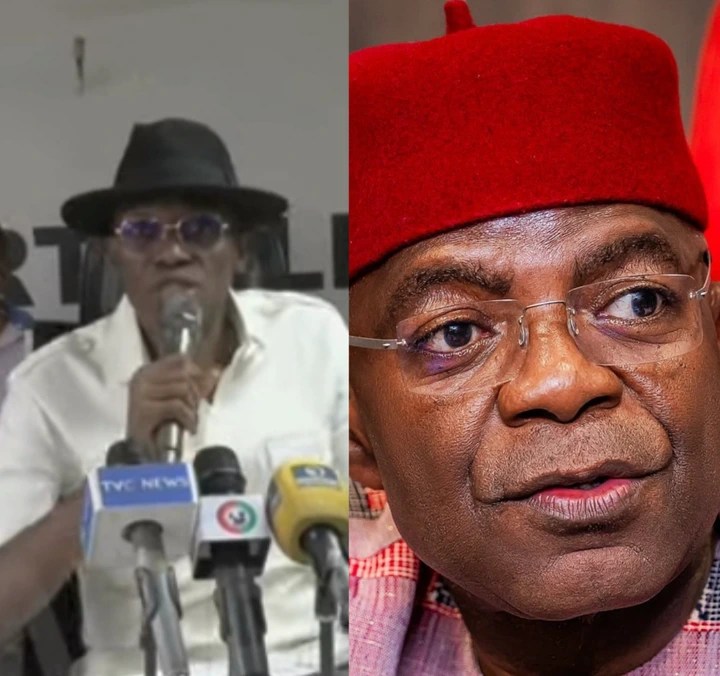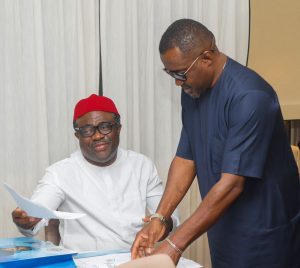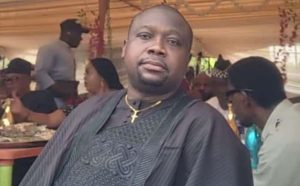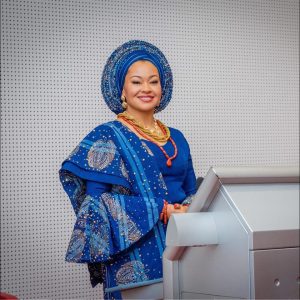Alex Otti Is Not Only a Dwarf in Appearance, He Is a Dwarf in Knowledge”—Julius Abure’s Blistering Rebuke of the Abia Governor
In what has now spiraled into one of the most dramatic intra-party confrontations in recent Nigerian political discourse, the Acting National Chairman of the Labour Party (LP), Julius Abure, has launched a no-holds-barred verbal attack on the Governor of Abia State, Dr. Alex Otti. Abure’s stinging remarks came in response to comments allegedly made by Governor Otti during a media interview, where he reportedly criticized the party’s leadership and internal crisis management.
The fallout marks a striking escalation in tensions within the Labour Party, particularly between the national leadership and one of its most high-profile elected officials. Once seen as a unified front during the heady days of the 2023 general elections, the internal fissures within the LP are now laid bare for the public to see.
The genesis of the conflict can be traced to an interview granted by Governor Alex Otti on Thursday, May 1, 2025. Speaking on Symfoni TV, Otti offered a critique of the Labour Party’s internal structure and ongoing leadership tussles. Although his words were not made entirely public, insiders and political commentators have indicated that Otti dismissed the current leadership as uncoordinated, suggesting they were engaged in what he described as “political masturbation”—a crude metaphor implying ineffectual and self-indulgent politics.
YOU MAY READ
Supreme Court Judgment CTC Affirmed Usman’s Position as Labour Party Chairman – Governor Otti
Julius Abure, whose leadership of the party has been under constant challenge—especially from factions loyal to Mrs. Nenadi Usman, another contender for the party’s national leadership—could no longer maintain silence.
In a fiery interview on Symfoni TV the following day, Abure lashed back in personal and political terms. “We have waited patiently as matured men,” he began, “but today I must respond to the many things Alex Otti said about our party.”
And then came the punchline: “Is Alex Otti that I have seen who is not only dwarfy in appearance but also dwarfy in knowledge?”
It was the kind of statement that electrifies Nigeria’s political terrain: brazen, deeply personal, and bound to provoke outrage or applause, depending on where one stands.
Beyond the personal jab, Abure’s remarks were underpinned by deeper grievances over Governor Otti’s perceived aloofness from the party that helped bring him to power. The LP chairman accused Otti of treating the Labour Party leadership with disdain, running his administration as though he were an independent candidate, and failing to maintain institutional loyalty.
“It is sad that someone who rode on the back of the party to power, someone who benefited from the support and sacrifice of Obidients and Labour Party structures, now believes he is above the party,” Abure said.
According to him, Otti has not only distanced himself from the party’s leadership but has also actively undermined its relevance in Abia State. Abure cited instances where the governor reportedly refused to meet with national officers of the party and declined to involve them in governance discussions.
YOU MAY READ
LP Lawmakers Haven’t Given Party a Dime Since 2023 Elections – Abure
“He has been acting as if he is too big for the party, as though he is doing us a favor. That is not how party democracy works,” Abure fumed.
The relationship between Julius Abure and Alex Otti has not always been cordial. Even during the run-up to the 2023 elections, there were murmurs of disagreement between the LP leadership and Otti’s campaign team over control of campaign resources and appointments.
Otti, a former banker and technocrat who defected from the All Progressives Congress (APC) to contest under the LP platform in 2023, has long been seen as politically independent-minded. While his election was a significant boost for LP in the South East—one of only two gubernatorial victories for the party nationwide—it also marked the beginning of ideological and operational divergence.
According to party insiders, Otti has often viewed LP as a convenient electoral platform rather than a long-term political family. His recent public comments were therefore seen by many in the party as the culmination of months of disregard for party protocols.
In a party that is still struggling to define its post-Obi identity and solidify national structures, such perceived indiscipline from top figures is viewed as a direct threat to its survival.
YOU MAY READ
Peter Obi’s Strong Ally, Oseloka Obaze, Dumps Labour Party: A Blow to the Obidient Movement?
Abure’s remarks have triggered mixed reactions across Nigeria’s political space.
Supporters of the LP chairman lauded his courage in calling out what they termed the “elitist condescension” of Governor Otti. For them, Abure’s comment, though harsh, was a necessary reassertion of party supremacy.
“He said what needed to be said,” a senior party official who spoke anonymously said. “Governor Otti cannot just come into the party, win elections, and then behave like he’s on a solo mission. There has to be discipline.”
However, many others—including neutral observers—have condemned Abure’s language as undignified and inflammatory.
Political analyst and columnist Kayode Ariyo wrote: “This kind of language—calling a sitting governor a ‘dwarf in appearance and knowledge’—is not only unacceptable, it reduces the tone of political discourse in this country.”
Governor Otti’s media team has so far declined to respond officially, but aides close to the governor have described the attack as “desperate and laughable.” One aide, speaking off record, said: “You can’t attack excellence because of insecurity. Governor Otti is one of the best-performing governors in the country today. If that’s what it means to be dwarfy in knowledge, Nigeria needs more of that.”
Beyond the personal feud lies a larger crisis within the Labour Party. Since the 2023 elections, the party has been embroiled in internal conflicts, leadership disputes, and ideological struggles.
Julius Abure has fought off multiple legal challenges to his position, while rival factions led by Nenadi Usman and others have staked competing claims to the party’s national leadership.
The Obidient Movement—originally a loose grassroots support network for Peter Obi’s presidential bid—has also increasingly become disenchanted with the party’s leadership. Several Obidient-affiliated groups have accused Abure and the LP executive of sidelining them and lacking transparency in party affairs.
YOU MAY READ
Confusion Surrounds Anambra Labour Party Primaries
For some observers, the Abure-Otti clash is simply a symptom of the larger identity crisis plaguing the LP: is it a party of technocrats or of grassroots revolutionaries? A structured political machine or a populist movement?
In the absence of ideological clarity and strong internal cohesion, these conflicts are likely to persist.
A conspicuous silence in this saga is that of Mr. Peter Obi, the LP presidential candidate and national figurehead of the Obidient Movement. Obi has maintained a studied neutrality in most of the party’s internal affairs since the 2023 elections.
However, his closeness to both men—he campaigned for Otti and has continued to express support for Abure—places him in a difficult position.
Some political analysts believe Obi’s silence is strategic, aimed at preserving his image as a unifier and avoiding unnecessary distractions as he plans for 2027. But others argue that his refusal to intervene in the growing factionalism may hurt the party’s long-term viability.
As one Obidient youth leader put it: “Obi cannot build a new Nigeria with a broken party. He needs to call his house to order.”
The implications of this feud for the Labour Party’s future cannot be overstated.
Governor Alex Otti remains one of the party’s most successful elected officials, a potential financier, and a policy success story in the eyes of many. Alienating him could weaken the party’s grip in the South East and send a negative signal to technocrats who might consider running under the LP banner in the future.
On the other hand, tolerating what the party sees as “arrogance” and “indiscipline” from its top elected members may embolden others to follow suit, weakening the authority of the national leadership.
The LP thus finds itself caught between asserting internal discipline and maintaining electoral relevance. It’s a delicate balance—and so far, there’s no indication that either side is ready to back down.
The Julius Abure–Alex Otti clash is more than a personal spat. It is a window into the soul of the Labour Party—a party that rose on the wings of hope, grassroots support, and a desire for a different kind of politics, but now faces the real-world complexities of internal democracy, power-sharing, and ego management.
The path forward requires humility, strategic reconciliation, and visionary leadership. Whether or not LP can survive these storms intact may well determine its viability as a third force in Nigerian politics heading into 2027.
For now, the fireworks continue. And Nigeria is watching.





